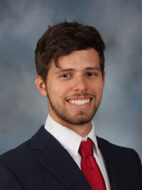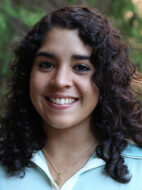Data Science for Social Good
APPLY NOW
Applications Open: Friday, November 10, 2023
Application Deadline: Wednesday, February 22, 2024
Applications can be found in the InfoReady System.
Program runs Monday, June 3, 2024 – Friday, August 9, 2024
Please direct any questions to: datascience@vanderbilt.edu
Overview
The Data Science for Social Good (DSSG) program is a ten-week experience where participants work as part of a data science team on a pre-selected project for a not-for-profit organization, Vanderbilt group, or government organization. In the event that there are multiple Social Good projects, Fellows will be able to rank their preference, and assignments will be made based on project needs, Fellow skills, and preference. 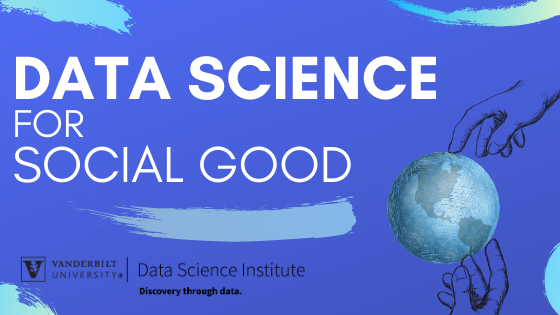
The teams will be led by a DSI staff Data Scientist, and will require close collaboration with the partner organization, participation in weekly planning sessions, and weekly presentations on current work (demos). In addition, participants will be able to attend weekly workshops on essential skills and tools for data scientists. The fellowship is open to current undergraduates and graduate students enrolled at Vanderbilt.
Program Highlights
- The main component of this program is to engage with team members to work on a data science focused project related to social good.
- The DSSG involves full-time work. Participants cannot enroll in summer session courses.
- DSSG participants are encouraged to attend summer events hosted by the DSI.
- The program lasts ten weeks.
Student Support
- A $6,000 stipend will be provided for each student.
Eligibility
- Current Vanderbilt undergraduate and graduate students enrolled in a degree program are eligible. Cannot be graduating in May 2024 or August 2024.
- Full consideration will be given to students who have at least a 3.0 GPA.
- Applicants must be able to engage in 10 weeks of full-time work during the summer.
- Participants cannot enroll in summer session courses.
Application Procedure
Applicants will be asked to provide the following (word limits apply):
- Describe your background in Data Science. (200 words)
- Describe your programming experience (R/Python/Other)*. (100 words)
- Describe your training and familiarity in statistics*. (100 words)
- Describe your experience in machine learning*. (100 words)
- Describe what motivates you to apply to the DSSG program. (300 words)
- Explain how the DSSG program will fit your short term and long term goals. (300 words)
- An unofficial transcript.
*All levels of experience and expertise in programming, statistics, and machine learning will be considered for the program.*
Questions? Please contact: Jesse Spencer-Smith, Chief Data Scientist, jesse.spencer-smith@vanderbilt.edu.
2021 Fellows
2021 Projects
GATEways Team 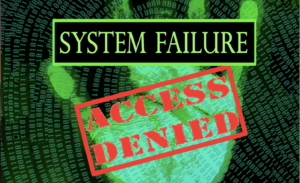
Black students and students of color are underrepresented in Gifted and Talented Education (GATE) programs. Research indicates there are 3.5 millions students are missing from these programs nationwide. In this project we will build tools that will enable educators and policymakers to estimate the number of students denied access in their area, and to estimate the economic and societal impact of stronger and more inclusive policies. This project involves the creation of interactive visualization dashboards in Shiny, the building and training of predictive machine learning models, and the development of simulations to explore policy implications. Our partner is Prof. Gil Whiting, Associate Professor of African American and Diaspora Studies, Director of the Scholar Identity Institute.
https://www.education.purdue.edu/geri/new-publications/gifted-education-in-the-united-states/
NASHZERO 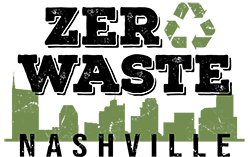
Metro Nashville wants to be solid landfill neutral by 2050. But development, esp. redevelopment, creates a large amount of solid waste. They would like to be able to predict the volume of solid waste based development, teardowns permits, perhaps further out, with economic growth, gentrification. They want to be able to estimate the impact of various or operational decisions. Our partner for this project is Metro Nashville Public Works.
https://www.nashville.gov/Public-Works/Waste-and-Recycling/Zero-Waste-Master-Plan.aspx
Legal Assistance 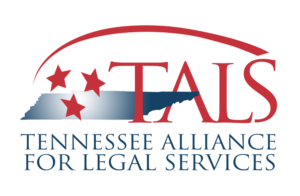
The need for legal assistance across Tennessee outpaces the capacity of available lawyers. Legal representation is more available in urban than in rural counties, and the magnitude and type of unmet needs in rural counties is unknown. In this project, we will build predictive models to estimate the number and types of legal assistance needs in Tennessee by county, provide invaluable guidance to state and national legal assistance agencies. Our partner is the Tennessee Alliance for Legal Services.
https://www.tals.org/




